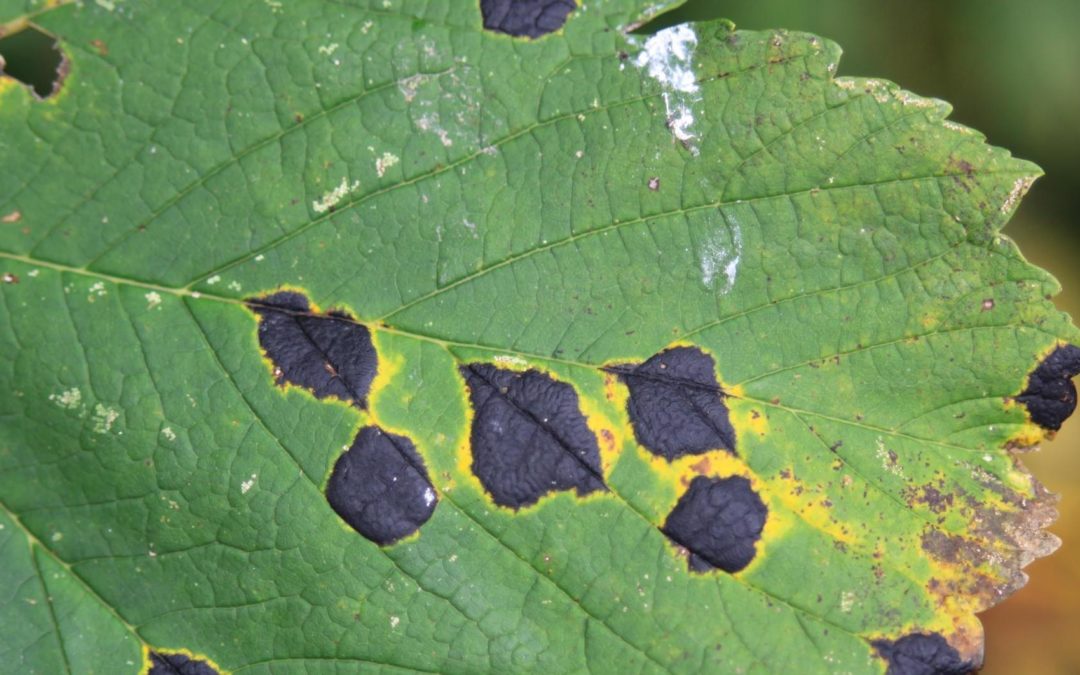Citrus Canker
Citrus canker is one of the most contagious disease issues in citrus trees. This bacterial infection creates yellow circled scabs or lesions on the twigs, leaves, and fruit of citrus trees. Serious infections can bring about fruit drop, dieback, blemished fruit, and leaf loss. The canker bacterium spreads fast and efficiently on birds, insects, air currents, and human beings via clothing.
There is an assortment of sprays made to safeguard against infections. Liquid Copper Fungicide is a preventative treatment, particularly when citrus canker has been discovered in the area. Sadly, already infected trees are usually destroyed swiftly to slow down the spread of the bacteria.
Greasy Spot
Greasy spot is another fungus disease of citrus trees. Telltale signs are yellow-brown blister spots on leaves, typically on the underside of the leaf. As the disease progresses, the spots change into greasy blisters. Greasy spot can bring serious leaf loss, usually during the wintertime and can also infest citrus such as grapefruit.
To regulate Greasy Spot, frequently collect and get rid of any fallen leaves, thus diminishing the source of fresh spores. In the summer (June and July), cover the tree with a liquid fungicide. A second application could be needed in the fall (August and September) to safeguard any summer growth.
Sooty Mold
A fungus, sooty mold makes the leaves on citrus trees turn black.
The mold develops on the leaves due to honeydew secretions from insects like mealybugs, aphids, and whiteflies. Insect control is the most efficient method in preventing the frequency of this disease. To control the insects and stop the secretion of the discharge of honeydew, use Bug Buster Insecticide on the tree.
When spraying the citrus tree, make sure that the undersides and top of the leaves are sufficiently sprayed. A second spray treatment may be needed around two weeks later contingent on the seriousness of the insect infestation.
To eliminate and control the mold growth that has already developed, dose the tree with Liquid Copper Fungicide. If you aren’t comfortable doing your tree applications, reach out to an arborist in Tampa to do the job for you.



